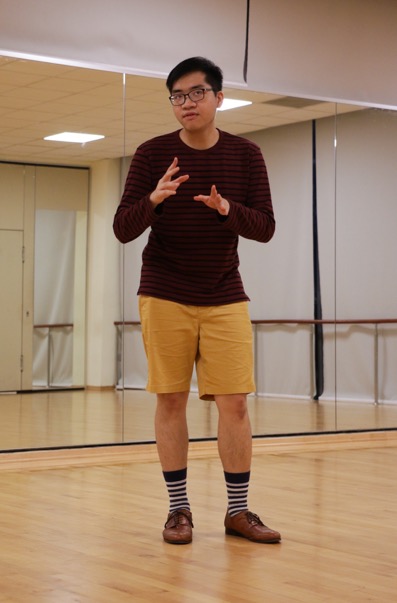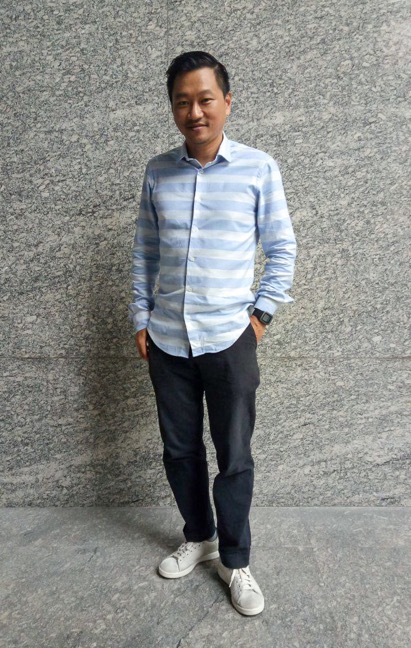“After 5 years of Lindy Hop dancing, I feel way more confident. Now, I can just randomly dance in public unlike before,” member of the Nanyang Technological University (NTU) Lindy Hop Cultural Activities Club (CAC) Do Anh Tu said.

The 26-year-old Vietnamese, better known as Boom by his peers, is an avid Lindy Hopper who has been in the swing scene for 5 years.
Swing Dance has many sub-genres including Lindy Hop which was formed in the 1920s. Lindy Hop is a dance that grew out of the African American community and thus, is commonly known as a ‘Black Man’s’ dance. Accompanied by Big Band Jazz music, it is a partner dance that is, “very grounded, earthy and rhythmic,” according to Founder of Jazz Inc Sinclair Ang, 43 . “Some even call it choreographed sex on the dance floor because it is just so wild and free.”

In 1994, Swing dance was brought back to life in Singapore by Sing Lim, a passionate dancer who sees social dance as a great community builder. Lim said: “The emotional benefit of connecting with the music and another person is omething quite unique. In this modern life where we are usually connected through an electronic device at work or socially, it’s great to be given a chance to interact with someone face-to-face.”
Boom was introduced to Swing dance back in 2013 when he was dragged to a dance school called The Hop. Boom was rather introverted back then, and the language barrier made it onerous for Boom to socialise with the Thai dancers. However, it did not take long for the community to make him feel welcome. “Most of the time, I’m standing at a corner observing people dance, but then the followers, female dancers will come to talk to me and invite me to dance.”
So far, the dance has been more than just an activity, aiding Boom both physically and emotionally. “Back then when I was pessimistic it would lighten up my mood,” and it helped him get through his Advanced Level examinations. “A month before my exams, I decided not to stay at home and mug but go out for social dancing. It really relieved my stress!”
However, the community of Swing dance enthusiasts remains small in Singapore. At the moment, the most active or well-known groups and companies in Singapore that revolve around Lindy Hop are: Swing and Jazz Incorporated, Lindy Hop Singapore, Timbre Music Academy and the NUS and NTU Lindy Hop CACs. The number of members in each group has remained more or less the same and has only slightly increased over the years.
As mentioned before, it has not gained much popularity. “People tend to go for solo dance styles like Hip Hop and popping but they don’t really go for partner dancing,” said Boom, when asked why Swing styles such as Lindy Hop may not be as popular among youths.
This may be due to Singapore’s culture and society, which poses a challenge. “Asians being Asians, many may not be comfortable dancing, or dancing with a person of the opposite sex,” said Desmond Khoh, 46, Co-Founder of Lindy Hop SG. Thus, this may contribute to the popularity of individual dance styles such as Hip-Hop and Urban over partner styles like Lindy Hop.

Mr Ang, who has attempted to reach out to a younger demographic of primary and secondary school students said: “We’ve done occasional swing workshops for secondary and primary schools, but mainly we do demos, not an actual workshop.”
Despite all the difficulties and challenges, the Swing community still survives and thrives on its communal spirit and benefits. Mr Ang supports this statement by saying: “Lindy Hop has saved many people’s lives because it’s a great cathartic release. Also, one of the key things about being plugged into the Lindy hop community is that it is a community so the social aspect is great as you get to build ties and relationships.”
Looking forward, many Swing dancers such as Boom, Mr Ang, and Mr Khoh are hoping for the return of jazz music which could possibly lead to the growth and development of the Swing scene in Singapore.
